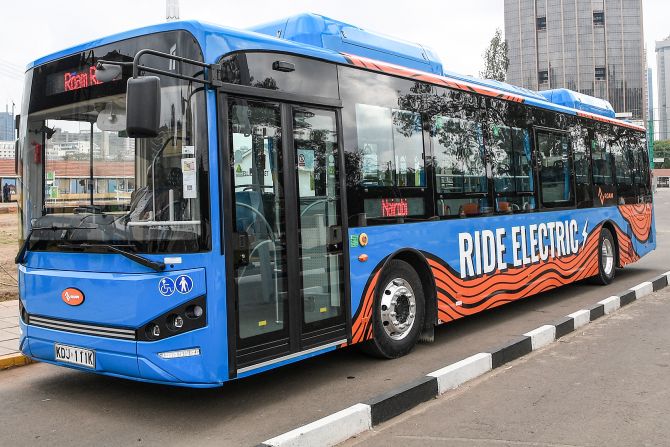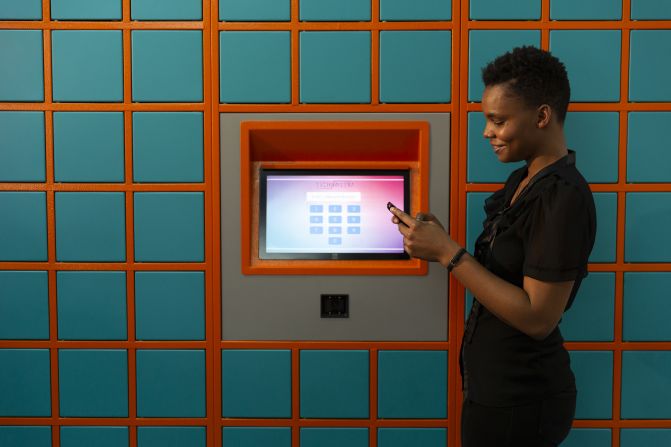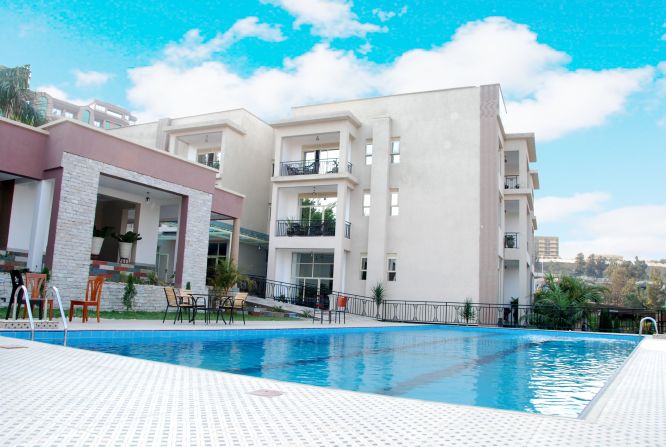
App-driven, on-demand food delivery services have boomed globally since the Covid pandemic, and Africa is no exception. Startups including FoodCourt, Heyfood, SendMe and Chowdeck, pictured, are vying to become the continent’s top food delivery app. Scroll through the gallery to see more African companies that are finding new ways to innovate.

Across the continent, transport startups are embracing electric vehicles. In Kenya, BasiGo and Roam are developing electric alternatives to Nairobi’s ubiquitous matatus (privately owned and operated minibuses). BasiGo is importing bus kits from China and assembling them locally, while the Roam buses (pictured) are designed and built in Kenya.

In Benin, Spiro, an e-bike and battery-swapping startup, is one of the leading providers of electric two-wheelers. In 2023, it announced it would be expanding to Kenya, with a rollout of 1.2 million electric vehicles.

Other startups are working on even more innovative transport solutions. South African aerospace startup Cloudline is building solar-powered autonomous airships designed for deliveries, aerial monitoring and inspection. The 18-meter (60-foot) long blimps can carry up to 40 kilograms (88 pounds), with a flight range of up to 400 kilometers (249 miles).

Cloudline is far from the only company embracing solar power. Nigerian startup Reeddi is looking to improve energy access with its lightweight solar-powered batteries that can be rented to customers for 24 hours and are able to power devices including TVs, laptops and refrigerators. The technology was one of the finalists for Prince William’s 2023 Earthshot Prize.

Startups are also innovating to improve healthcare. South Africa’s Pelebox has developed a system of internet-enabled lockers that dispense medication for chronic conditions to patients, helping to cut down queues and ease pressure on hospital resources.

In the travel space, Bongalo is vying to become an African alternative to Airbnb. The company, which was founded in Cameroon and is now based in Rwanda, has more than 6,000 listings across the two countries. Properties can be booked via the website or an app.

Africa’s beauty and personal care market is growing fast, but there's still a lack of products tailored towards Black skin. Uncover, a Kenyan skincare brand, says it wants to fill this gap by providing healthy cosmetics that put African women first. It uses digital tools to find out its customers’ needs and offers online skincare consultations.



